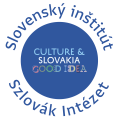This international conference focused on the memory of everyday collaboration with the communist regimes, and history of everyday life in East Central Europe.
The concept of “collaboration” is a social construct, a set of cultural characteristics formed by the social, economic and political conditions of a particular historical context. The organisers tried to analyze these conditions and represent the diverse ways collaboration has been represented in different Eastern European societies during the communist period.
One of the aims of this conference was to develop a new interpretation of ‘collaboration’ with the communist regimes by using the terms ‘cooperation’ and ‘political participation’, but also to find new directions for a field that is often disrupted by the politically charged atmosphere in which stories of cooperation are revealed. It seeked to reveal not only a wealth of ‘local’ and comparative information about cooperation hitherto unknown, but also to interrogate the ways in which postsocialist cultures produce knowledge about ‘collaborators’ or ‘political participants’, and draw a distinction between ‘extraordinary’ and ‘ordinary’ histories.






